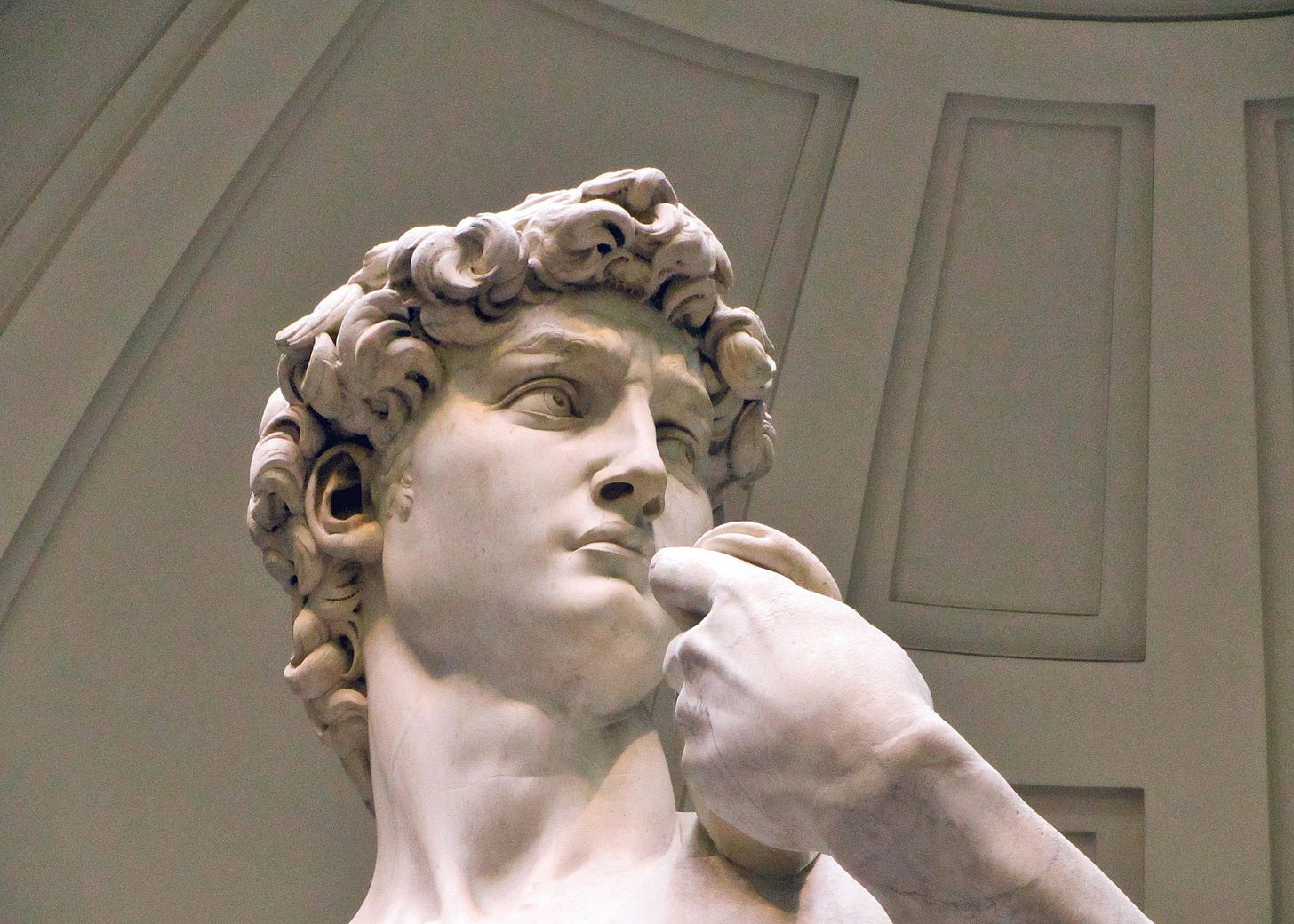Is This Pornography?
If everyone has the right to ban books they don't like, there won't be any books left to read
Michelangelo's David is one of the great masterpieces of the Renaissance. Standing over 17 feet tall and made from a single block of marble, it depicts the Biblical character preparing for his battle with Goliath. The sculpture is so lifelike that you can see the tension in his muscles even today, more than 500 years after it was created. Many consider it to be among the finest examples of human expression and creative ability ever created. But that didn't stop a principal in Florida from losing her job last year, after a parent complained that a picture of the statue was too pornographic to be used in an art history class.
Next week is Banned Book Week, an opportunity to highlight the value of free expression and remind ourselves of the danger of censorship. Sadly, the American Library Association reports there were 1,247 attempts to censor 4,240 different library books last year. This isn't normal or acceptable. This is the largest number of censorship attempts ever recorded by the association. As a comparison: the number of censorship attempts in 2015 was 275. And the problem is growing all around us. Right now in Lehighton, the school board has pulled dozens of books from the high school library in order to "audit" them for "unacceptable" content.
Nobody wants pornography in our schools. But Michelangelo's David provides an important lesson about book bans too: there is always going to be someone, somewhere, who will claim something is too sexually explicit and should be banned. After all, David IS naked.
Our schools don't have random collections of every possible book. Instead, school librarians make careful decisions, with extremely limited budgets, about what to buy for the library based on a wide variety of factors, including the maturity level of different kids, student interests, the school curriculum, and more. These librarians are experts in making these choices, with professional library certifications, sometimes graduate degrees in library science, and many years of experience with different age groups.
Let me share a specific example from East Penn. Nobel-prize winning author Toni Morrison's book The Bluest Eye has been one of the most frequent targets of book banners for years. East Penn librarians have rightly recognized that the novel has significant literary and educational value, but also that it deals with more mature topics-- including the existence of sexual violence-- that may not be appropriate for younger readers. As a result, you can find a copy of this particular book at Emmaus High School, but not in either of the middle school libraries. School librarians make conscientious and informed decisions like this all the time, and are the key to appropriate and vibrant library collections.
Even so, reasonable people might still disagree about specific books. And that's where parents come in. Opposing censorship doesn't mean opposing parents making decisions about acceptable books for their own children. It means opposing those same parents (or, increasingly, outside political groups) declaring the right to make those decisions for other people's children. It's fine for a parent who believes 'naked' is the same as 'pornography' in Michelangelo's David to ask that a book about the sculpture not be taught to her child. But that belief shouldn't mean that nobody in the school district gets to learn about this masterwork.
Please celebrate Banned Books Week by learning more about the avalanche of censorship efforts that have targeted our libraries and schools in recent years. Consider reading one of last year's top 10 most challenged books. One of the great things about standing up against censorship is that it is something people across our current political divides can agree on. That is certainly something to celebrate.
I've written about many aspects of censorship in our schools in the past. Here are some other posts that might interest you:
Young adult author John Green has seen several of is books be targeted for censorship. His response is one of my favorites on the topic. Give him 3 minutes; you won't be disappointed:




